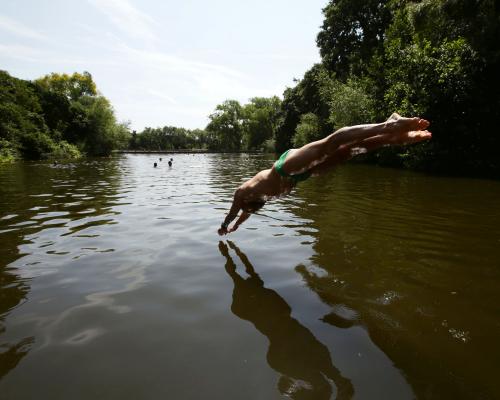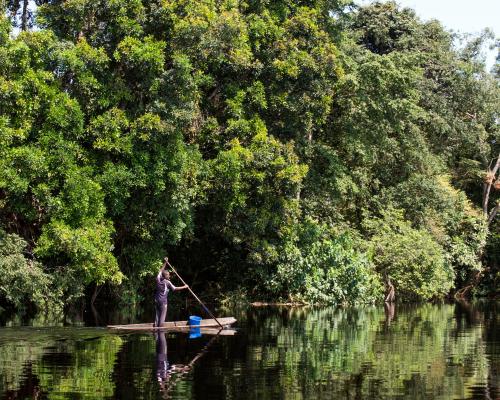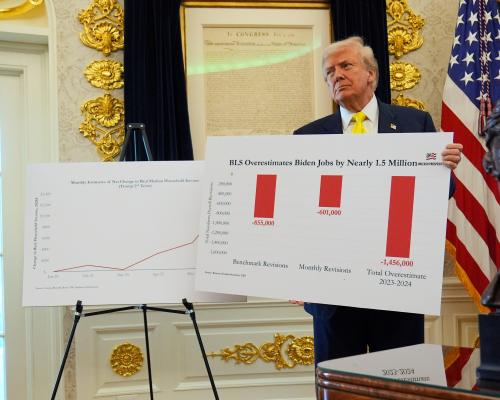
English swimming waters are five times more likely to be polluted than those in the EU, new research has revealed.
Experts have said that the country is in danger of becoming the “dirty man of Europe” again as it falls at the bottom of the leaderboard for bathing water which is free of bacterial contaminants.
The campaign group Best for Britain analysed the quality of bathing waters under UK and EU standards and found that across all four nations of the UK, holidaymakers are less likely to enjoy “excellent” quality waters than in the EU.
Their research found that while 64.2% of England’s bathing waters were rated excellent by the Environment Agency (EA) in 2024, 85.4% of the EU’s were excellent according to the European Environment Agency (EEA) in the same year.
England also had more bathing waters rated as “poor” quality than any country in the EU, with 8.4%. Scotland was on 3.4%, Wales on 1.8% and the EU on just 1.5%. Northern Ireland had no bathing water sites rated poor. By way of comparison, Estonia had the highest share of officially rated “poor” bathing waters among EU countries (4.6%). Out of all the countries measured under the EEA standards, which includes some non EU countries, Albania ranks the worst, with 22.9% of its bathing waters rated as poor.
A “poor” rating means that the water quality falls below the acceptable level for safe bathing, meaning it contains too large a quantity of bacteria such as intestinal enterococci and E coli. These bacteria can cause serious illness, so people are directed to avoid swimming in areas rated poor.
At the moment, bathing waters in the UK and the EU are measured under the same standards. The UK is under the bathing water regulations 2013, and the EU is under the bathing water directive. Both regulations apply the same standards of how much of various bacteria, such as E coli, can be in 100ml of water to meet the criteria.
The government is changing the UK’s water regulation system, including scrapping the regulator Ofwat and making a new “super regulator”. There could be new water quality measurement frameworks as a result of the updated regulation programme.
The same standards currently apply to UK and EU countries, but many EU countries appear to be implementing and enforcing the standards more effectively, Best for Britain said. The Office for Environmental Protection, which is the watchdog set up to replace EU oversight after Brexit, has found the UK is on track to miss water cleanliness targets it would have had to meet if it was in the EU.
In the EU, countries are due to update their water regulation and filter out contaminants from chemicals, pharmaceuticals and pesticides under the urban waste water treatment directive. Sir Jon Cunliffe, who wrote the government’s recent independent review into the water sector, recently told the Guardian that the UK should do the same thing. There are no government plans to do so.
Campaigners said the UK should take note and keep pace with EU regulation. Naomi Smith, chief executive of Best for Britain, which campaigns for closer ties between the UK and EU, said: “People are rightly appalled by the disgusting state of the UK’s rivers, lakes and beaches. Clean water should be guaranteed to all, and no one should have to risk their or their child’s health simply by enjoying a swim or paddle on a sunny day.
“Once again, when it comes to environmental regulation, enforcement and protecting people’s health, the European Union leads the charge. This is yet more evidence ministers must properly implement and enforce existing standards – and keep pace as the EU raises the bar in ways that can tangibly benefit millions, as our polling shows voters expect.”
Amy Fairman, head of campaigns at River Action, said: “This analysis confirms what bathers and river lovers already know: UK waters are in crisis. Polluting‑for‑profit water companies, industrial‑scale agriculture, and toothless regulation have failed people and nature alike.
“The independent water commission was right to call for Ofwat’s replacement, but only real power, enforcement, and accountability will fix a broken system. It’s outrageous that the UK now sits amongst the worst performing countries for water quality in Europe – and unless we act, we’ll return to our shameful position as the ‘dirty man of Europe’.”







